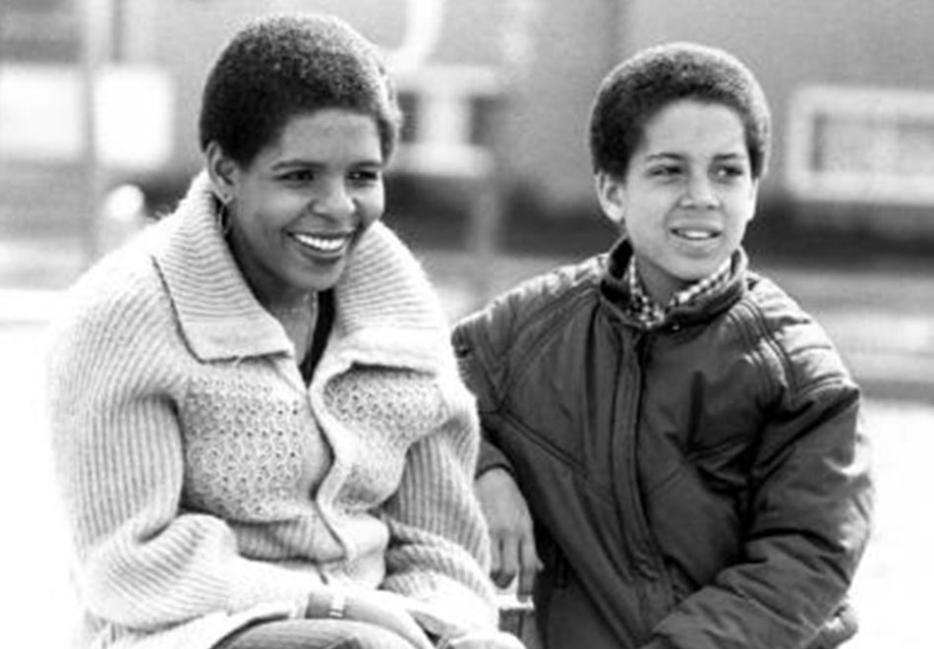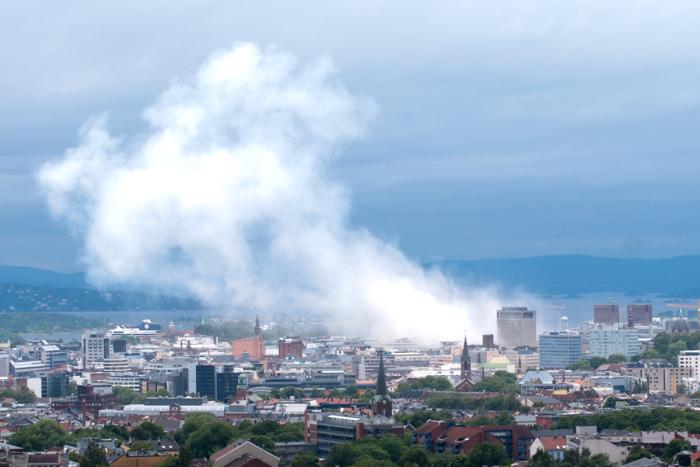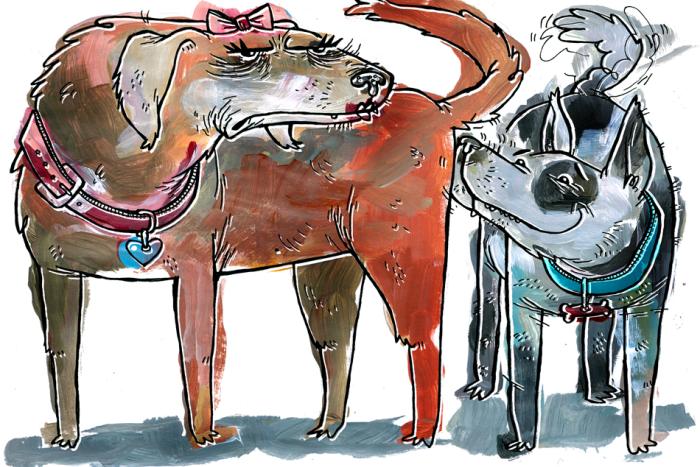“You can’t change where I come from, or who I care about.” — Kendrick Lamar
That I hold both a British and Canadian passport rarely comes up in conversation. Though when it does, whether in Toronto where I live or abroad, I’m guaranteed to be asked, “So why the hell are you still in Canada?”
England, which I last visited over Easter weekend, contains many delights: East Enders, Ribena drinking boxes, Jaffa Cakes. But it’s also expensive, dreary, and overrun with my extended family. The thing that no one—even fellow Canadians—considers is that I might actually just love Toronto. My grandparents are from India, both of my parents were born in East Africa and I spent the first four years of my life in the UK. Here, at home, I’ve felt that there’s a way to reconcile feeling lost in the world by making something new with people like me. But as I get older, lost feels like a permanent state: a purgatory between multitudes that no amount of imagination can help me—we—escape.
In February, Toronto’s Reel World Film Festival screened The Glory and The Pain, a short biopic by Roger McTair on the filmmaker Jennifer Hodge, and Hodge’s crucial 1983, NFB-backed documentary Home Feeling: Struggle For A Community. Born in Montreal to a multi-generational, matriarchal African-Canadian family, Hodge—who died of cancer at 38—was one of this country’s first black female filmmakers. Home Feeling, a candid and thoughtful look at the economic fates and displacement experienced by residents of the city’s Jane and Finch neighbourhood, became a landmark piece of work. It also pissed off bureaucrats and their ilk for its negative portrayal of Toronto Police Services: Hodge had been sure to document incidents and effects of disproportionate and relentless “community policing” tactics.
When I watched it, I bugged out at how much the film feels like today. The same—some might argue worse—fates playing out for another generation of black and racialized Torontonians, just in different clothing, driving different cars and making their way through a shinier-looking city. Nearly all of Hodge’s ideas are applicable 30 years later: discriminatory carding and “community policing, ” Jane-Finch’s thorny citywide reputation, perpetually embattled community housing, high rates of unemployment.
Home Feeling gets its name from something one of its subjects says. Greg, a young Grenadian immigrant who speaks in a soft voice with a lisp, describes how, back home, after work or school, it’s normal practice for friends meet up and socialize outside. “When we do that up here, the police will come and say ‘move along.’ Maybe they don’t understand certain things that we do.” Decades into the multiculturalism project, that cultural understanding—that lack of empathy—is still missing. What gives second and third generation non-white Canadians who continue to be disproportionately unprotected, criminalized, or left out of mainstream institutions, that home feeling?
*
Last month, Shad was named host of CBC’s q and there was plenty of talk about “hope” for the future. For many black and brown Canadians, like my friend Nana Aba Duncan, it was akin to a communal win; still, some white reactions were tinged with a certain faux-progressive glee—particularly when referencing the very real backlash against the new host—as if Shad was the first rapper hired by the CBC, or as if one HR decision could absolve the country of its record of erasure and exclusion. I felt cynical; I wondered if this high profile hire would actually improve the homogeneity of the country’s internal culture, and Canadian media in general. My concern became more acute when “serious broadcaster” Peter Mansbridge was called upon to welcome Shad to the CBC with a goofy rap (playing right into those pernicious ideas about black rappers and glass ceilings). The Canadian story continues to unfold, but it’ll only evolve when different people get the chance to tell it.
This is not a #TorontoIsFailingMe sob story. This is about questioning why Lee’s Ghee (a white woman’s culinary vanity project) is more newsworthy than Han’s Dairy (a profitable Punjabi-owned business). Or why Drake—who grew up here, like me, and my friends with brown skin, all holders of Canadian passports—is constantly interrogated about his blackness vis-à-vis glib cross-examinations of his “Canadian-ness.” It’s about the pervasive homogeneity of a national narrative, which manifests in befuddling ways. Like the divided reactions to Desmond Cole’s brilliant, heartbreaking memoir for Toronto Life about a lifetime of being stalked by police because of his black skin. (Whites were wide-eyed with shock; the rest of us, weary from the knowledge, relieved that Cole was able to articulate the problem.) It’s the frustration of living in a country that says it’s post-multicultural, but that skipped past the muck of real diversity, and descended instead into faux-enlightenment.
*
Multiculturalism, though well intentioned, has always been a reaction to white as default, but we can't continue to rely on this basic binary of national identity: white, hockey-playing Tim Hortons guzzlers and an indistinguishable horde of immigrants. Reviewing new works by rapper Kendrick Lamar and novelist Paul Beatty, The New Yorker’s Hua Hsu recently wrote about this variant strain of erasure: “We’re still here between the lines, living in a town that’s getting edged off the map, inhabiting identities at a time when we’re told to move beyond them.”
We let a lot of different people live in this country, but is everyone allowed to call it home? That home feeling varies for all of us, but I find it in the chaos of cultures around me; there’s no place else like this. And though I’m a reluctant nationalist, it’s the one thing that makes me happy to call myself Canadian.
As a writer primarily interested in expanding the Canadian narrative by documenting my immediate community, discovering Hodge’s work was practically and emotionally essential. I felt the same way reading Love Enough, the newest novel by Dionne Brand, a poet and writer who both idealizes and gives real voice to Toronto and its motley inhabitants. Some of my friends might feel more Canadian when they wake up and hear Shad on the radio, asking questions they might ask. Or maybe by listening to Drake’s mixtape and hearing an accent that is a uniting characteristic ofyoung people from Scarborough right through to Brampton, using a lexicon that Kardinal Offishall made a chart-topping song about in 2001. It’s the discovery and creation of reference points that give us control over our identity, helps assert our right to individual contexts and saves us from cockamamie think pieces in the process.
Home Feeling is an amazing buried relic—though the film is housed in university libraries across the country, and available to stream for free —and, as racialized Canadians and Americans get louder and louder, it’s a reminder that there are stories and films and music and art, a legacy of imagination and existence that also, conveniently, documents a telling, parallel legacy of being left out of the Canadian narrative. I heard Hodge say, “Immigrants aren’t the first; there were others here before us, and we are just building on their stories.” Suddenly, I don’t feel as lost.






